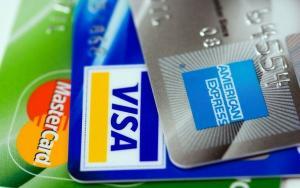Credit card defaults require immediate resolution. This is because credit card debt is unsecured, meaning the borrowers do not have to provide collateral for the money they borrow.
In an era where total U.S. credit card debt has surpassed the $1.13 trillion mark, delinquency isn’t just a statistic—it’s a direct threat to your institution’s liquidity and lending power. For credit unions, community banks, and retail creditors, “Charge-Offs” are often treated as inevitable losses. However, in today’s high-velocity economy, those losses are frequently the result of outdated recovery methods that fail to engage the modern consumer. Nexa provides a sophisticated, data-driven recovery framework that utilizes professional mediation and 2026-compliant technology to turn stagnant accounts into liquid assets, all while protecting your brand from the scrutiny of federal regulators.
Nexa provides 100% reputation-safe, equipped with all 50-state collections license, offering free credit reporting, free litigation, free bankruptcy scrubs, and zero onboarding fees. Secure – SOC 2 Type II & HIPAA compliant. Over 2,000 online reviews rate us 4.85 out of 5.
Need a Collection Agency? Contact us
The Credit Landscape: By the Numbers
Current data shows that credit card delinquency rates have climbed to their highest levels since 2011, with nearly 8.9% of balances transitioning into delinquency annually. For regional lenders, the “Cost of Recovery” often outweighs the debt itself when using traditional legal channels. Nexa flips this equation. By utilizing high-frequency digital “nudges” and professional mediation, we help you recover principal balances before they reach the 180-day charge-off threshold.
Industries We Serve (Financial & Retail Context)
-
Community Banks & Credit Unions: Specialized handling of delinquent consumer lines, overdrawn accounts, and deficiency balances. We navigate the nuances of member-driven relationships.
-
Retail & Store Cards: High-volume recovery for private-label credit cards. We understand the “net-30” cycle and the importance of maintaining customer loyalty.
-
FinTech & Neobanks: Tech-integrated recovery for digital-first lenders. We speak the language of API-driven collections and real-time reporting.
Credit Recovery: Legal & Compliance Framework
Credit card debt is the most heavily regulated form of consumer debt. Nexa’s platform is built on a “Compliance-First” architecture to protect your institution from CFPB audits.
| Feature | 2026 Regulation / Rule |
| Regulation F (7-7-7 Rule) | We strictly adhere to the limit of 7 calls in 7 days per account, with a 7-day “cooling off” period after a conversation. |
| Digital Opt-In | Our systems capture and record consumer consent for SMS and Email communication as per the latest FCC mandates. |
| Late Fee Caps | We stay updated on CFPB rulings regarding late fee limitations to ensure every dollar recovered is legally defensible. |
| Statute of Limitations | Generally 3 to 6 years depending on state law; we prioritize “fresh” debt where legal leverage is highest. |
Recent Recovery Results
-
Regional Credit Union Recovery: A community bank had a portfolio of delinquent “store-branded” cards totaling $89,400 in principal debt. Through Nexa’s digital mediation and tiered outreach, we recovered $80,100 (86%) within 45 days.
-
Retailer Credit Recovery: A high-end home restoration company was owed $12,500 on an internal credit line for a kitchen project. Nexa’s mediation team established a structured settlement, recovering the full principal over a 60-day period.
Our Cost-Effective Pricing Structure
-
Fixed Fee Service ($15): The perfect “pre-collection” tool for accounts 30–60 days past due. The debtor pays you directly; you keep 100% of the recovery.
-
Contingency Fee (20% – 40%): Performance-based recovery for older, “charged-off” accounts. If we don’t recover your money, you don’t pay us.
Frequently Asked Questions (FAQ)
1. How do you ensure my institution stays compliant with the CFPB?
Nexa uses an automated compliance engine. Every call, text, and letter is timestamped and recorded within our system to ensure we never exceed contact limits or violate the Fair Debt Collection Practices Act (FDCPA).
2. Can you report delinquent credit card debt to the bureaus?
Yes. For accounts that meet the legal criteria, we provide credit reporting services. However, our primary focus is on voluntary mediation, which often results in faster payment than the threat of a credit “ding.”
3. What is the difference between your “Fixed Fee” and “Contingency” for credit cards?
The $15 Fixed Fee is a “first-party” style service where we act as an extension of your billing department. The Contingency model is for deeper collections where intensive investigation and skip-tracing are required to locate the debtor.
Ready to Reclaim Your Capital?
Don’t let your balance sheet suffer from uncollected card debt. Partner with a recovery team that understands the 2026 financial landscape.

